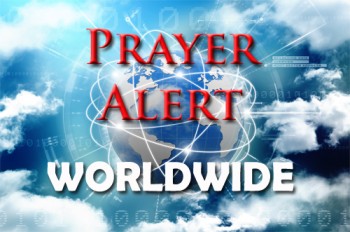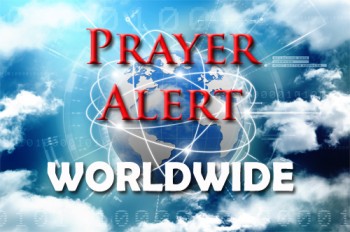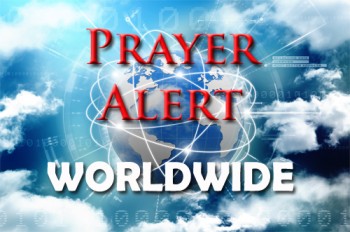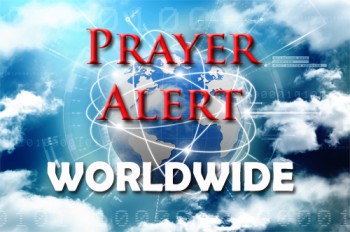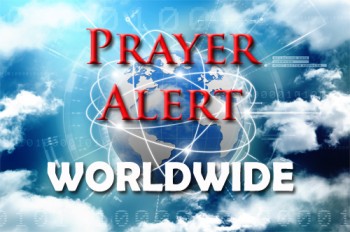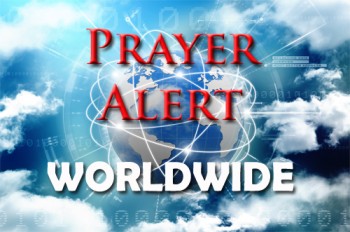Displaying items by tag: Juan Guaido
Venezuela: ‘Operation Blackout’?
Nationwide power cuts in Venezuela started on 7 March. The government of Nicolás Maduro blames US-backed saboteurs and snipers for the lack of water and electricity. Experts blame poor maintenance and a bush fire in the power grid. Russia backs Maduro’s version of events, claiming Washington is employing ‘techniques’ to remove him, including a man-made shutdown of energy facilities they called ‘Operation Blackout’. These allegations contradict the widespread consensus that Hugo Chávez’s authoritarian heir is responsible for an unprecedented electricity crisis that has deprived millions of citizens of light and water. Men are chopping down trees to take home to light fires for heat and light. When water stops flowing, people go to rivers and streams and collect muddy water to boil and reuse. There is dehydration, diarrhoea and a danger of more serious diseases. Opposition leader Juan Guaidó is calling people to take to the streets on 1 May for an enormous march to keep the pressure on the president to go. See
Colombia / Venezuela: crisis
Colombian charities and churches are delivering food and basic supplies to families in Cucuta, a border town in crisis. Poverty, lack of services, and lack of medical attention is driving families to knock on church doors. Church members are hosting displaced families. The strain is noticeable. As this situation continues to unfold they are asking people to pray for the injured and homeless. Meanwhile Venezuela expelled the German ambassador for helping opposition leader Juan Guaidó’s safe return to the country. Many other diplomats were at the airport to receive him, but so far only the German ambassador has been targeted. Germany, which recognises Mr Guaidó as interim president, said the expulsion will escalate tensions. The US is revoking visas of people linked to President Maduro to put more pressure on him to resign. More rallies on the streets against Maduro are due on Saturday. The next few days are critical. See
Venezuela: gold removed from central bank
Opposition leader Juan Guaidó was prevented from delivering aid across Venezuela’s border recently, and twenty-five wounded protesters were treated in Brazil. Now President Nicolás Maduro is seeking to raise capital amid tightening sanctions. Eight tons of gold were removed in government vehicles from the Venezuelan central bank’s vaults while its head was abroad on a trip. No security guards were present. The gold will be sold abroad to raise funds. Production of oil, the country’s biggest export, has collapsed, plunging the country into a deep economic crisis. Meanwhile, in Brazil, Mr Guaidó met EU ambassadors, then President Bolsonaro, in an attempt to drum up international pressure on Maduro to step down. He has vowed to return to Caracas soon despite the risk of imprisonment. See
Venezuela: backstory to crisis
Juan Guaidó and Nicolás Maduro both claim to be president. While resolving their standoff over leadership is critical, finding prosperous and stable paths forward requires taming criminal non-state groups controlling local territory and illicit industries across Venezuela, often operating with overlapping allegiances and activities. Well-armed neighbourhood criminal gangs called colectivos have been co-opted by the regime to suppress dissent in the capital and work with other quasi-official repression squads that it has created as an insurance against fickle loyalties of rank and file soldiers and police. There are also regional criminal syndicates controlling illegal mining and drug trafficking industries, which operate alongside local or national officials and transnational crime networks. If a resolution is achieved between Guaidó and Maduro, these groups will want to expand their positions and exploit any local power vacuums created. Pope Francis has expressed an openness to mediate in Venezuela’s political situation if both sides are willing. See
What next for Venezuela?
With their country in turmoil, both Nicolás Maduro and Juan Guaidó claim to be president, and neither has any incentive to back down. Guaidó has huge popular support, and is backed by many western powers (including the EU), but has little control over the levers of power. Although Maduro is still backed by allies such as Russia, Turkey, and Cuba, he is under unprecedented international pressure. Military top brass still support him, but there have been defections by junior officers. If he is to survive, he will need to keep the army loyal, which means finding a way to keep the ordinary soldiers paid. Another solution - but not one that would benefit ordinary people - is a military coup, but that might well mean a return to kleptocracy, mismanagement and authoritarianism. In any case, a change at the top would not placate the opposition, now emboldened and set on restoring democracy. Maduro has nothing to gain and everything to lose from stepping down, as he would probably be called to account for his authoritarian rule. Guaidó has promised an amnesty for any members of the armed forces who ‘contribute to the reestablishment of democratic order’. Another possibility, even if very unlikely, would appear to be outright conflict with the USA. Donald Trump, who publicly supports Guaidó, has just imposed sanctions on the country’s state-owned oil company.
Venezuela's Christians urge prayer as crisis worsens
On 24 January Venezuela’s opposition leader Juan Guaidó swore himself in as the rightful head of state, with the support of the USA and other nations in the region, as he attempts to remove President Maduro. He now faces the daunting task of establishing a transition plan without control over crucial state institutions and armed forces that have, so far, disowned him. Venezuela's churches have called for prayer as pressure mounts on Maduro to step down. Mass demonstrations against the economic mismanagement that has caused widespread poverty have been taking place. Pastor Samuel Olson, president of the Evangelical Council of Venezuela (ECV), invited the nation to pray 'together as a family, asking God that through His Holy Spirit He would care for, direct, and bless our nation in this critical hour of its history'. ECV are backing Juan Guaidó as the man 'called to conduct the nation in this period of transition'. See also
